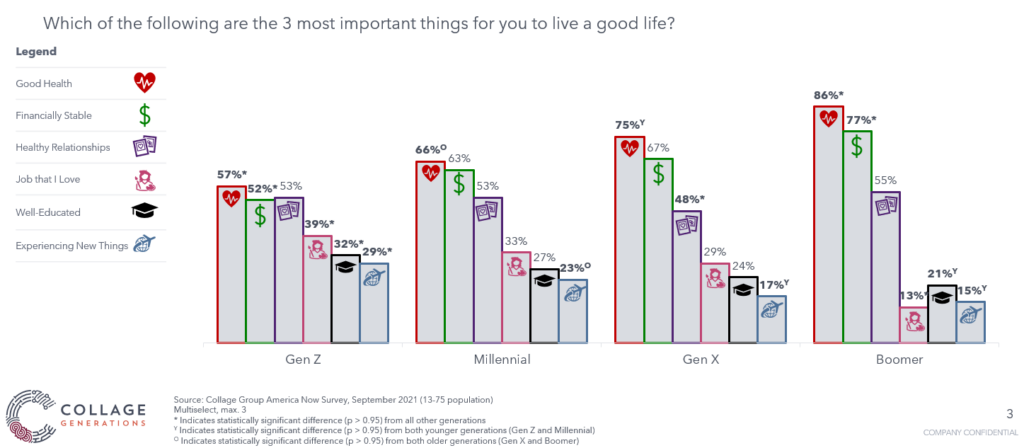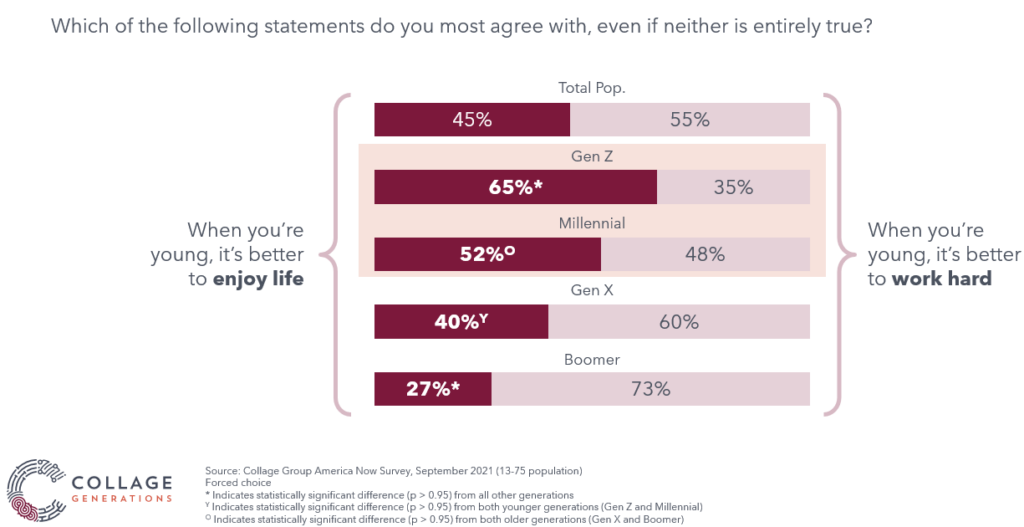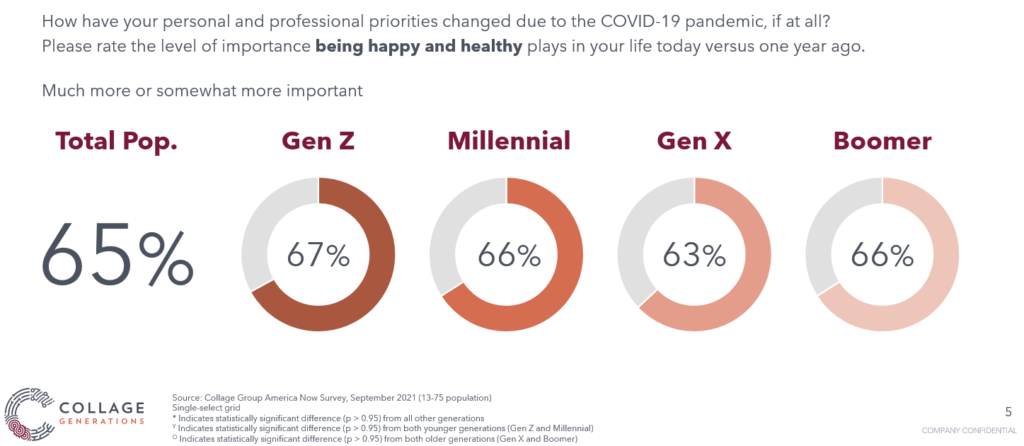America Now: Life Priorities Across Generations

This research is part of a series that expands on our 2021 Roundtable Presentation, America Now. Read on for a snapshot of American generations’ current priorities in life.
Understanding Americans’ priorities and life values offers crucial context into how consumers make choices. Personal values often stem from cultural context, such as each generation’s unique upbringing. While one’s outlook on life usually remains stable over time, the pandemic sparked a massive reevaluation of priorities as Americans grappled with uncertainty and unexpected life changes. Brands must stay abreast of these changing consumer tides by getting back to basics: understanding their target consumers on a core level through current attitudinal and values-based data.
Fill out the form to view a sample from our research presentation, America Now: How We Have Changed Since 2020.
In a recent study, Collage Group asked Americans about the top three things they consider important to living a good life (such as good health, financial stability, healthy relationships, a job that they love, being well-educated, or experiencing new things). Our data shows that younger Americans tend to desire a more well-rounded lifestyle, spreading priorities across many of these areas of life. Older generations, by contrast, approach life more traditionally—strongly valuing health and finances while de-emphasizing other topics.

These generational differences can be partly explained by socio-historical context. Boomers and Gen Xers grew up during a time period where the ethos was the “American dream.” Hard work was—and still is—highly valued by them and viewed as a direct path to success.
Just decades later, Millennials and Gen Zers each came of age in a rapidly changing world with turbulent political and economic circumstances (Millennials, the 2008 recession; Gen Z, the COVID-19 pandemic). This upbringing tainted their worldview, calling the “American dream” into question entirely. In turn, younger generations cope with cynicism by taking on a “YOLO” (“you only live once”) attitude. They try to enjoy life while they can rather than wasting too much of their life working towards a version of success they’ll never attain.

While historical context explains a core part of each generation’s outlook on life, it doesn’t mean that people’s attitudes and values are locked in permanently. Times of massive change and uncertainty, such as the COVID-19 pandemic, can be the spark for deep realignment of social values. We are already seeing this trend in our data.
For example, Gen X and Boomers, two generations that have historically valued more traditional life goals and prioritized work over happiness. When asked explicitly about how their personal and professional priorities changed due to the COVID-19 pandemic, two-thirds say that being happy and healthy is more important than it was a year prior. In fact, the data is on par with Gen Z and Millennials. This is evidence of values shifting and even converging across generations. Moreover, this data point indicates that wellness is a growing area of opportunity for the total market despite conventional wisdom that it’s a Gen Z and Millennial fad.

Get In Touch
Harness the power of cultural intelligence to win diverse America. Discover how you can turn insights into impact today! Contact us.